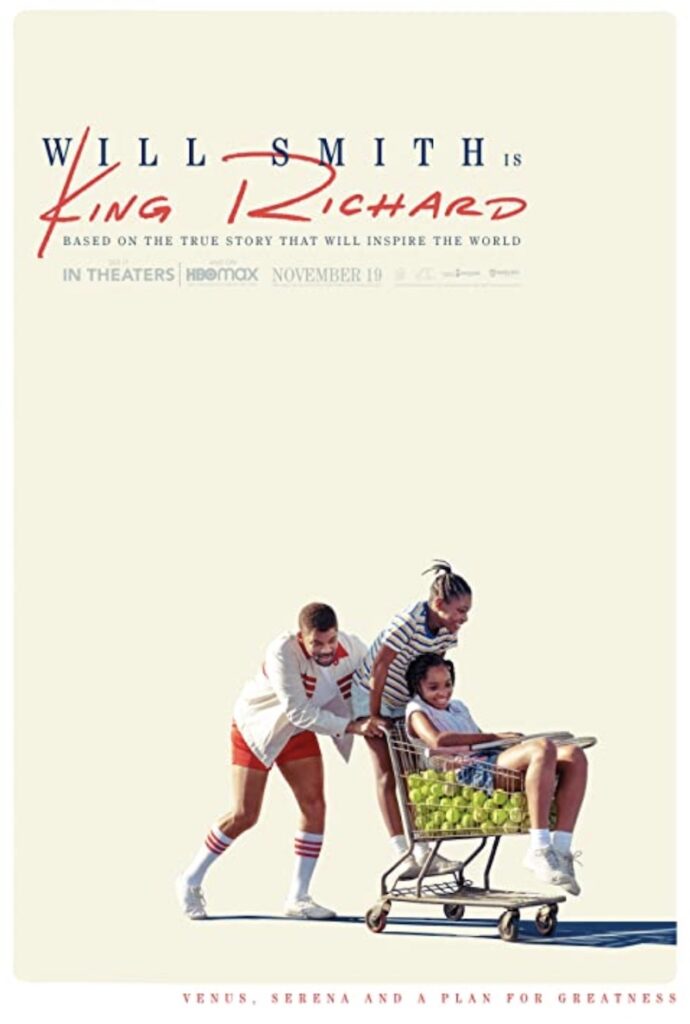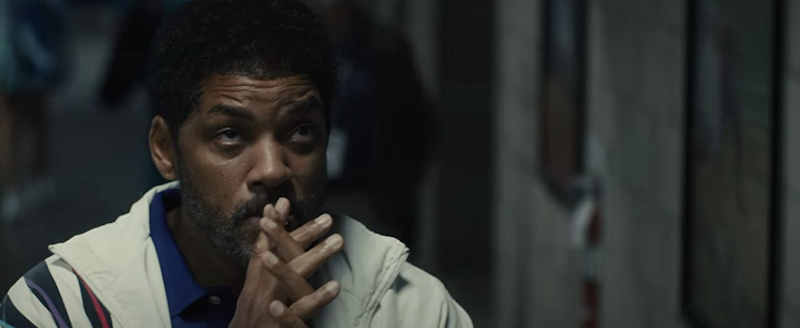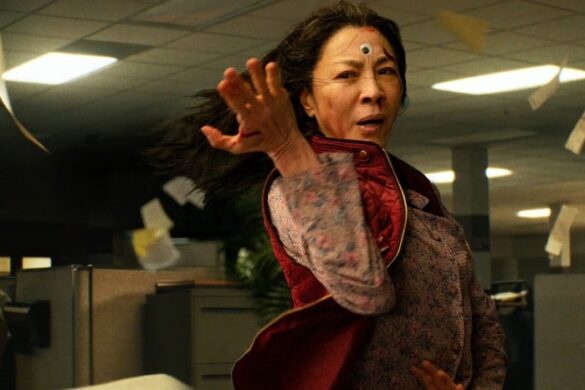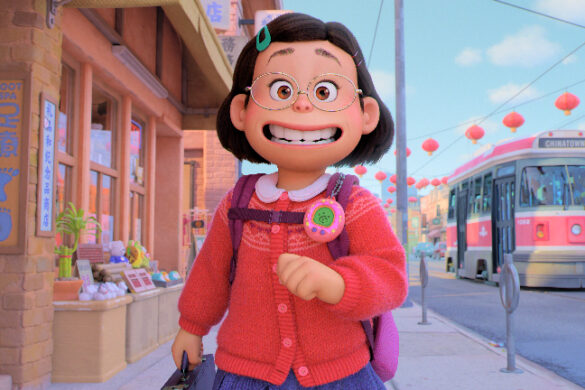
King Richard may adhere to the usual cinematic sports drama playbook, but much of what makes it such a hit is that it provides new and more nuanced storytelling from a new perspective. At the same time, it gives the terrific cast the space necessary to bring the unlikely true story of Venus (Saniyya Sidney) and Serena Williams’ (Demi Singleton) rise to stardom and their father Richard Williams (Will Smith) tough love and coaching style to life. Though the film is told from Richard’s perspective, Aunjanue Ellis, who gives nothing short of an all-star performance, comes away with being the MVP.
Set during the early 90s, “King Richard” centers on Richard Williams, who creates a 78-page plan for family success, which includes a strict practice regiment and commitment for their current tennis stars Venus and Serena Williams. Faced with an uphill battle against the likes of racism, classism, and more, “King Richard” follows the journey of a family whose unwavering resolve and unconditional belief ultimately delivers two of the world’s greatest sports legends.
As with nearly all sports dramas and biopics, there is a specific formula to follow to cover many athletes’ successes and failures. However, what helps break away from it is seeing it from a new perspective. Richard and the Williams sisters may serve as the more prominent fixtures of the film that will surely draw a crowd to the theater, but their names are more fronts. That is not to take away from their struggles or achievements. The real takeaway is that here we see a father figure willing to risk it all, fight for his family, and do what it takes to ensure that their future does not exist in their impossibly difficult living predicament.
Regardless of how the story is adapted, it is about how Richard’s brand of unconventional coaching was the trajectory needed to turn the Williams sisters into the Queens of Tennis that they are now. As such, director Reinaldo Marcus Green, using a script written by Zach Baylin, relied more on its stars’ performances than familiar structures and frameworks. And the result of it all is that we get a more nuanced depiction of the lives of the Williams family before they became tennis icons.
Smith gives a career-best performance as Richard by using all of the vocal cadences and physical nuances that encapsulate the real-life person. It’s almost as if he gets lost in the role. Not only does Smith need to show how much of a father and coach Ricard was to his two daughters, but he also is their hype man and a deputy agent to them. As he pushes their education and instills wisdom, he also has to protect them from any dangerous and toxic influences that could hurt their chances of becoming the tennis legends he knows they can be. So, to improve his daughter’s skills, he pitched to coaches at various elite clubs during the day, never once sacrificing his or their dignity. Instead, he wished everyone who rejected him to do well as he moved on to the next person. It may not have looked like a winning strategy at first, but it would work if he put in the persistence.
This is undoubtedly Smith’s film as he plays the titular character, but the film wouldn’t be nearly as strong as it is without its supporting cast. Ellis’ Oracene “Brandy” Prices is the matriarch of the family who doesn’t get nearly enough credit for her efforts. But that doesn’t mean she has to put up with some of Richard’s decisions, like punishing Venus for gloating or taking over the decisions that could harm their daughter’s future as a tennis player. The film gives her the time needed to call him out on everything he’s done that would hurt their kids’ lives. Ultimately, her presence helps ground the man living on the idea that his 78-page plan is the only way to glory.
Of course, there wouldn’t be much of a “King Richard” without the Williams sisters. And most of the film’s athleticism leans heavily on Saniyya Sidney as Venus Williams. On and off the court, Richard uses a variation of the “if you fail to plan, you plan to fail” quote to help inspire his daughters. And it shows as Venus puts in the work both physically and emotionally. The former sees her taking on challenges head-on and without fear. She had been preparing for those tournaments for a very long time. And the latter sees her wanting to prove herself to her father, whose ego can sometimes hold her back.
But “King Richard” isn’t entirely warm, wholesome content. It strikes a balance through that familial tension and the use of divine intervention. This works to the benefit of the film as it gives audiences a better understanding of why Richard pushes his daughters so hard and some of the choices he makes. And even if some of the more prolific coaches like Tony Goldwyn’s Paul Cohen and Jon Bernthal’s Rick Macci find Richard’s coaching interference of teaching methods very questionable.
It’s hard not to see how Richard could not get hypocritical and get caught up in the excitement of being a father to not one but two tennis prodigies. And the film doesn’t shy away from how those outside influences impacted his decision-making and could potentially endanger his relationship with his family. But it’s something that could have happened to anyone in the same situation. So, in a way, revealing those flaws helps make for a well-rounded film.
And since “King Richard” centers on Richard and his family, the film would need to address the racial tensions they would face, whether through Venus’ domination on the court or the gatekeepers that would allow Venus access to premier coaches if Richard signed with them. As one might expect, the film doesn’t shy away from the treatment they got, whether it was Williams’ being a dominant force or those gatekeepers treating Richard as less than a human. Again, it feels familiar because the signs are there, and we recognize the history of a person of color coming into a white-dominated sport. But it’s all in how Green utilizes Baylin’s script and lets the cast embrace all of its complexities.
Sure enough, “King Richard” is the kind of film that gets the job done because everyone understands what is at stake. There’s no doubt that the Williams sisters’ story deserves to be told on a cinematic level. And while it does feel familiar at times, it still manages to serve up a few emotional aces and win the match by finding the right balance between the on-court and off-the-court familial drama.
8,5/`10
In theaters November 19, 2021.










